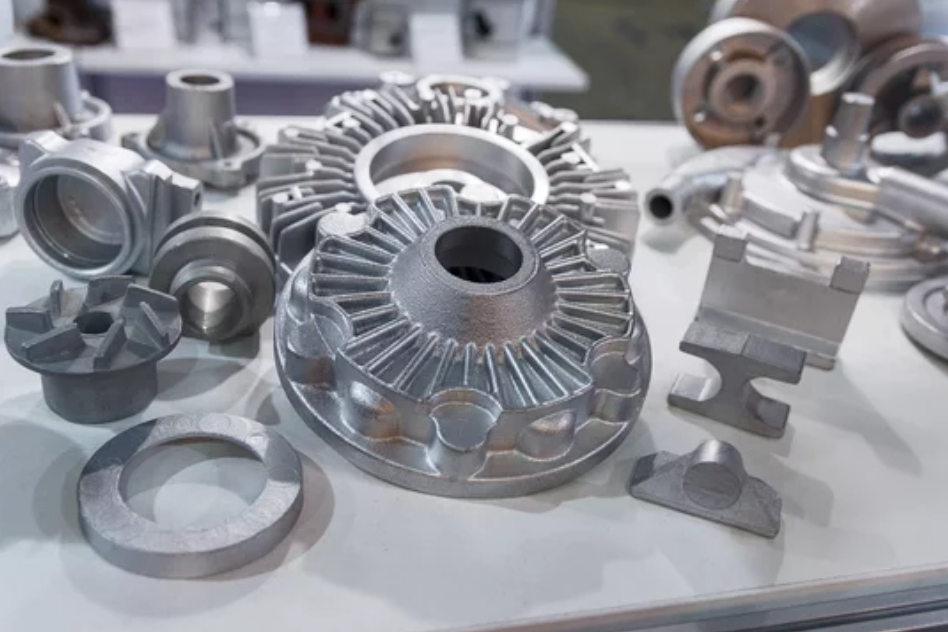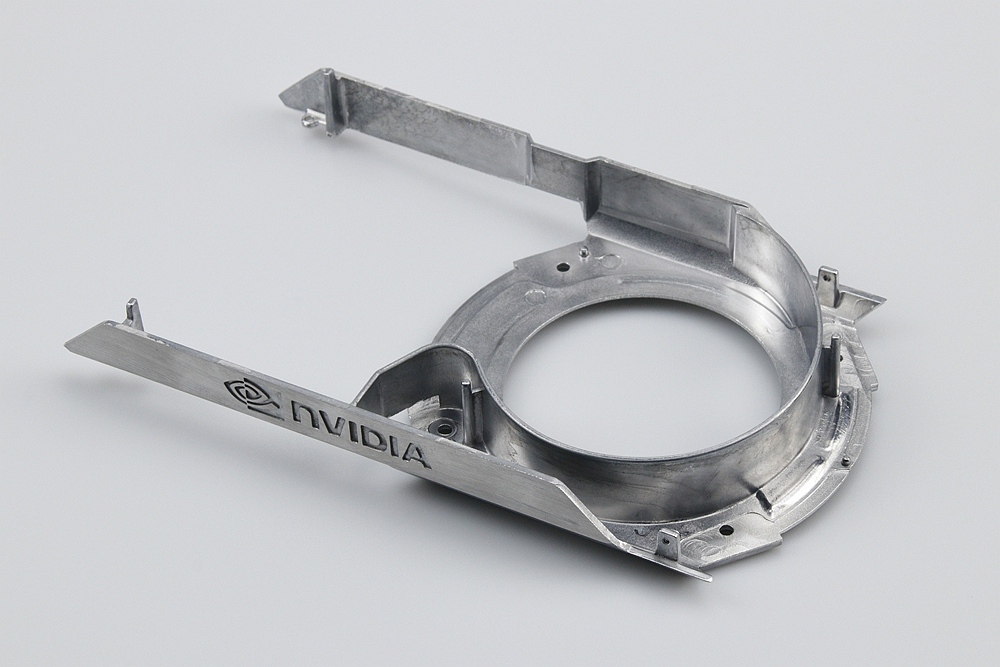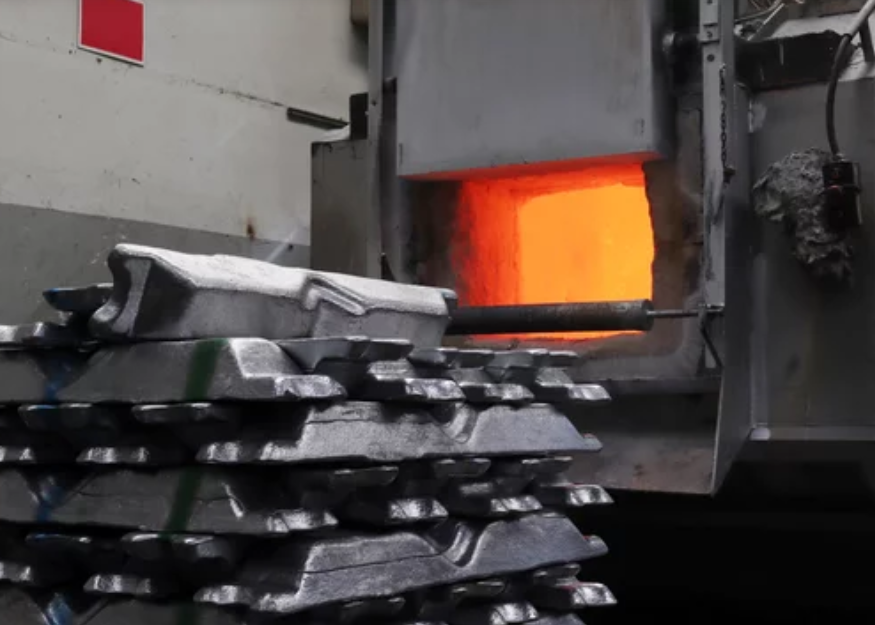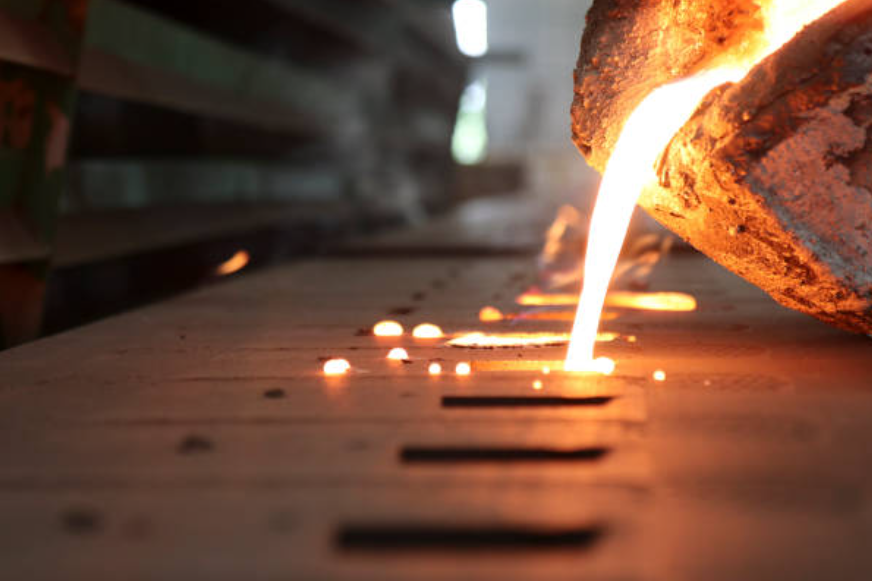Cast Titanium
Titanium Investment Casting
Titanium investment castings, known for their exceptional properties, find versatile applications across various industries, including Consumer Electronics, Telecommunication, Lighting Solutions, Power Tools, and Locking systems. These precision-crafted components are celebrated for their high strength-to-weight ratio, corrosion resistance, and biocompatibility, making them ideal for uncompromising performance and durability applications.
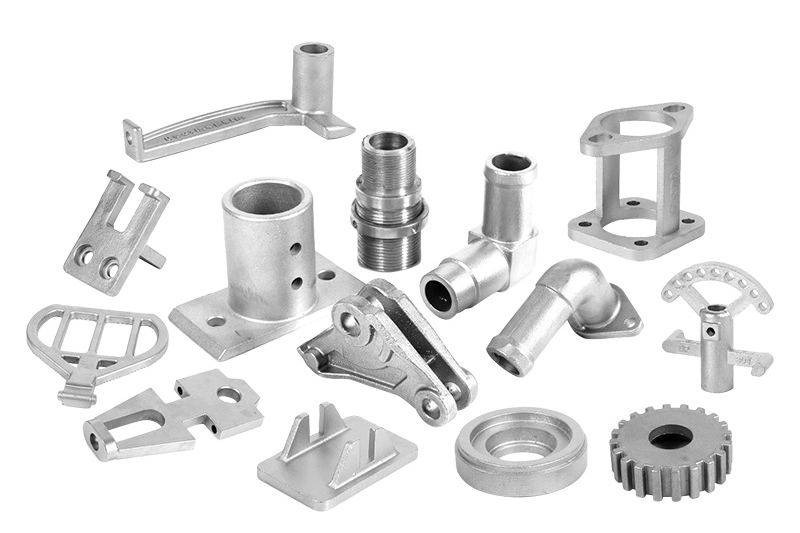
In Consumer Electronics, titanium investment castings are used in lightweight yet robust components like smartphone casings. In Telecommunication, they enable the development of efficient antenna brackets. For Lighting Solutions, these castings enhance the longevity of fixtures in harsh environments. They also contribute to the ruggedness of Power Tools, ensuring reliability in demanding tasks. Moreover, the Locking system benefits from its exceptional wear resistance and reliability.
Typical Cast Titanium We Use:
Grade 2 Ti (Ti-CP)
Grade 5 Ti (Ti-6Al-4V)
Grade 19 Ti (Beta-C)
Grade 23 Ti (Ti-6Al-4V ELI)
Properties of Cast Titanium Alloys
Chemical Comparison of Investment Cast Titanium Alloys
Alloy Grade | Titanium (Ti) | Aluminum (Al) | Vanadium (V) | Tin (Sn) | Iron (Fe) | Oxygen (O) | Other Elements |
|---|---|---|---|---|---|---|---|
Grade 2 Ti | 99.2% | - | - | - | 0.30% | 0.25% | - |
Grade 5 Ti | 90.7% | 6.0% | 4.5% | - | 0.25% | 0.20% | - |
Grade 19 Ti | 90.9% | 6.0% | 4.0% | 0.25% | 0.25% | 0.15% | - |
Grade 23 Ti | 90.0% | 6.0% | 4.0% | - | 0.25% | 0.13% | 0.1% Al, 0.4% Sn |
Function of Chemical Components
Titanium (Ti):
Titanium is the backbone of these alloys. Its most notable property is its outstanding corrosion resistance. It forms a protective oxide layer on its surface when exposed to oxygen, which makes it highly resistant to rust and many corrosive environments. Additionally, titanium has a superb strength-to-weight ratio, making it ideal for applications with both strength and low weight, such as aerospace and medical devices.
Aluminum (Al):
Aluminum is often added to titanium alloys to improve their strength, especially at elevated temperatures. It forms stable intermetallic compounds, strengthening the material. The aluminum-titanium combination is precious in aerospace and marine applications where materials must withstand high-temperature and corrosive conditions.
Vanadium (V):
Vanadium is a strong β-phase stabilizer in titanium alloys. This stabilizing effect refines the microstructure, enhancing strength and toughness. It also aids in preventing overheating during the alloy's processing. In aerospace, vanadium-containing titanium alloys are preferred for their high strength and lightweight properties.
Tin (Sn):
The addition of tin serves multiple purposes. It contributes to the alloy's strength and hardness, particularly at lower temperatures. Tin is also used to stabilize the beta phase and improve high-temperature performance. In applications like chemical processing equipment, where high strength and resistance to elevated temperatures are required, tin-containing titanium alloys are chosen.
Physical and Mechanical Properties of Cast Titanium
Property | Tensile Strength (MPa) | Yield Strength (MPa) | Hardness (Brinell) | Shear Strength (MPa) | Impact Strength (J) | Fatigue Strength (MPa) | Thermal Conductivity (W/m·K) | Density (g/cm³) | Melting Range (°C) |
|---|---|---|---|---|---|---|---|---|---|
Grade 2 Ti | 345 | 275 | 120 | 205 | 60 | 215 | 20.9 | 4.51 | 1670-1700 |
Grade 5 Ti | 895 | 830 | 330 | 550 | 85 | 330 | 6.7 | 4.43 | 1635-1650 |
Grade 19 Ti | 485 | 345 | 135 | 295 | 70 | 230 | 11.8 | 4.49 | 1660-1680 |
Grade 23 Ti | 828 | 759 | 320 | 545 | 110 | 315 | 6.7 | 4.51 | 1630-1650 |
Key Features and Applications of Titanium Investment Castings
Grade 2 Titanium (Ti-CP)
Grade 2 Titanium (Ti-CP), with its impressive 99% titanium composition, boasts exceptional characteristics that make it a valuable choice for investment casting applications. Its primary attributes include remarkable corrosion resistance, making it well-suited for harsh industrial environments. In investment casting, where precision is paramount, this corrosion resistance ensures the longevity and reliability of the cast components. Moreover, Grade 2 Titanium's high formability and weldability are advantageous for intricate casting processes, allowing for the creation of intricate, high-precision parts.
One prominent application of Grade 2 Ti in investment casting is in the aerospace industry. It finds use in producing intricate components, such as turbine blades and structural elements, whose corrosion resistance and lightweight nature are pivotal. This titanium grade is also employed in the medical device sector to craft biocompatible and durable implants. Its non-reactive properties ensure patient safety and long-term functionality. Grade 2 Titanium's ability to maintain its integrity in demanding conditions makes it an exceptional choice for investment casting in both industries.
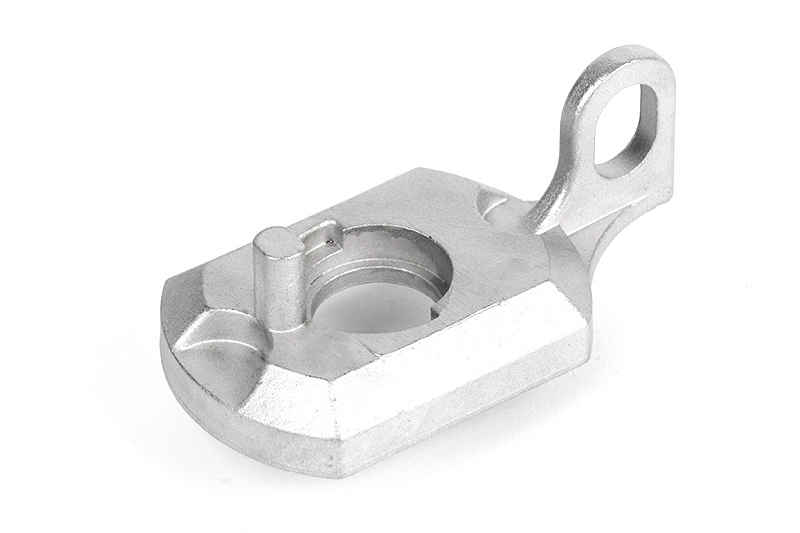
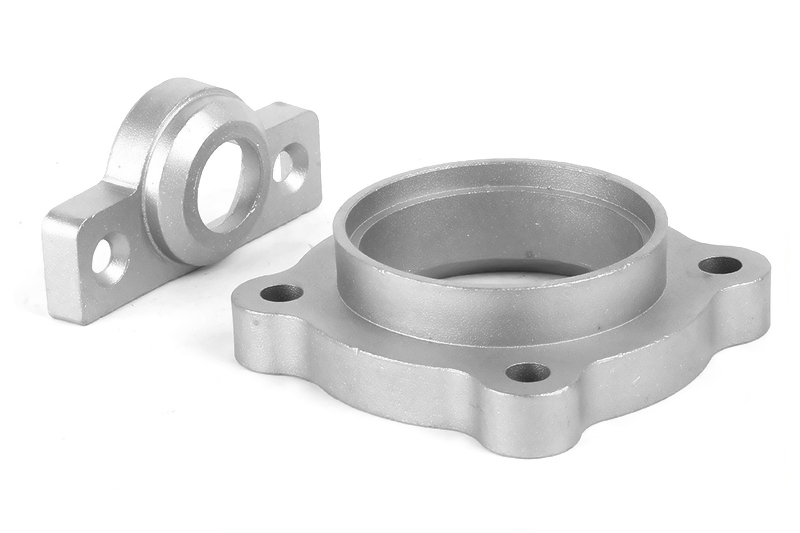
Grade 5 Ti (Ti-6Al-4V)
Grade 5 Titanium, commonly called Ti-6Al-4V, is an illustrious titanium alloy admired for its high-strength properties. Comprising 90% titanium, 6% aluminum, and 4% vanadium, it offers a perfect blend of strength, heat resistance, and corrosion resistance. These characteristics make it a prime choice for investment casting, particularly in industries where precision and reliability are paramount.
One noteworthy application of Grade 5 Ti in investment casting is within the aerospace sector. It is pivotal in creating critical components such as aircraft engine parts and structural elements. Its remarkable strength and heat resistance ensure that the components can withstand extreme conditions, contributing to enhanced flight safety. Furthermore, this titanium alloy in the medical industry is utilized to craft implants that necessitate strength and biocompatibility. The alloy's high-temperature stability also lends itself to applications in gas turbine engines, reinforcing its position as a versatile and reliable material for investment casting.
Grade 19 Ti (Beta-C)
Grade 19 Titanium, also known as Beta-C titanium, exhibits several vital features that make it a valuable material in investment casting. Comprising 3% aluminum and 8% vanadium, this titanium alloy belongs to the beta-titanium alloy family. Its noteworthy attributes include exceptional formability and high-temperature stability. These characteristics are highly advantageous in investment casting processes, where precision and durability are paramount.
In investment casting, Grade 19 titanium shines in applications that demand intricate and complex shapes. Its ability to withstand high temperatures with poise makes it a prime choice for crafting critical components within the aerospace industry. Aircraft engine parts and airframe structures benefit significantly from Beta-C titanium, as it facilitates intricate casting and offers the resilience needed to endure demanding flight conditions. The combination of formability and high-temperature stability makes Grade 19 Titanium an exceptional choice for investment casting applications in the aerospace sector, aligning perfectly with the stringent requirements of this industry.
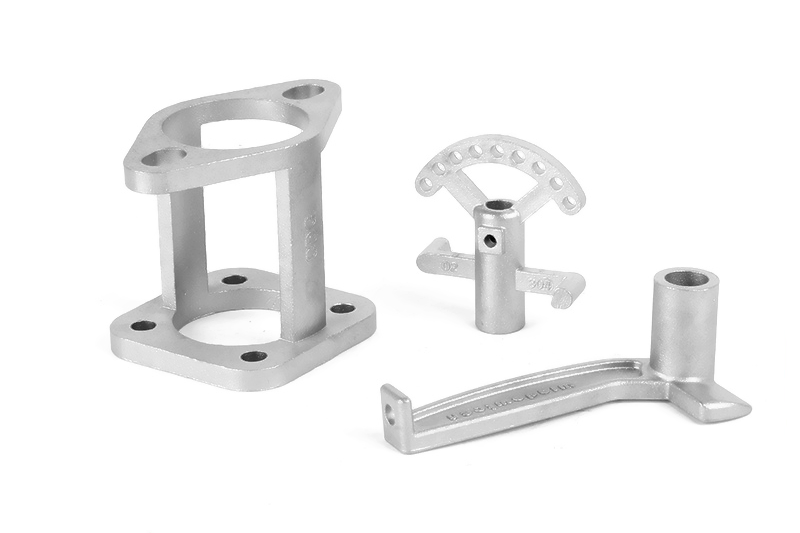
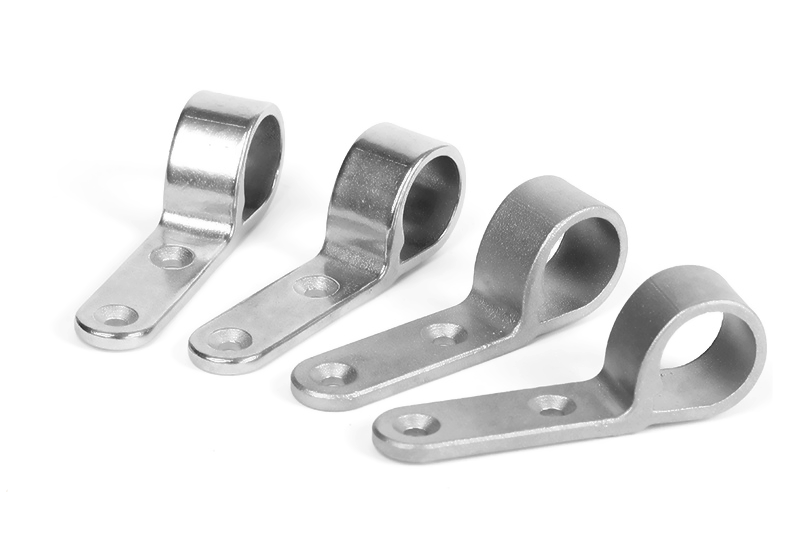
Grade 23 Ti (Ti-6Al-4V ELI)
Grade 23 Titanium, or Ti-6Al-4V ELI, is a titanium alloy with exceptional qualities that find notable applications in investment casting. A variant of Grade 5 titanium, its "ELI" designation signifies its low interstitial element content, making it an ideal choice for specialized applications, including medical and dental implants. While maintaining the outstanding mechanical properties of Grade 5, it offers superior biocompatibility, ensuring it meets stringent requirements in the healthcare sector.
In investment casting, Grade 23 Titanium shines in applications demanding precision and biocompatibility. Its unique mechanical strength and low interstitial elements make it well-suited for crafting intricate and medically vital components, such as orthopedic implants and dental prosthetics. The aerospace industry also benefits from its biocompatible properties when designing components interacting with the human body. The versatility of Grade 23 Titanium makes it a valuable asset in investment casting, providing precision, strength, and biocompatibility, aligning perfectly with the demands of the healthcare and aerospace sectors.
Precision Casting Cases Study
Neway is involved in many industries as an experienced precision castings (die castings, investment castings, gravity castings, and sand castings) manufacturer.
Here are related industries casting cases for your reference:
